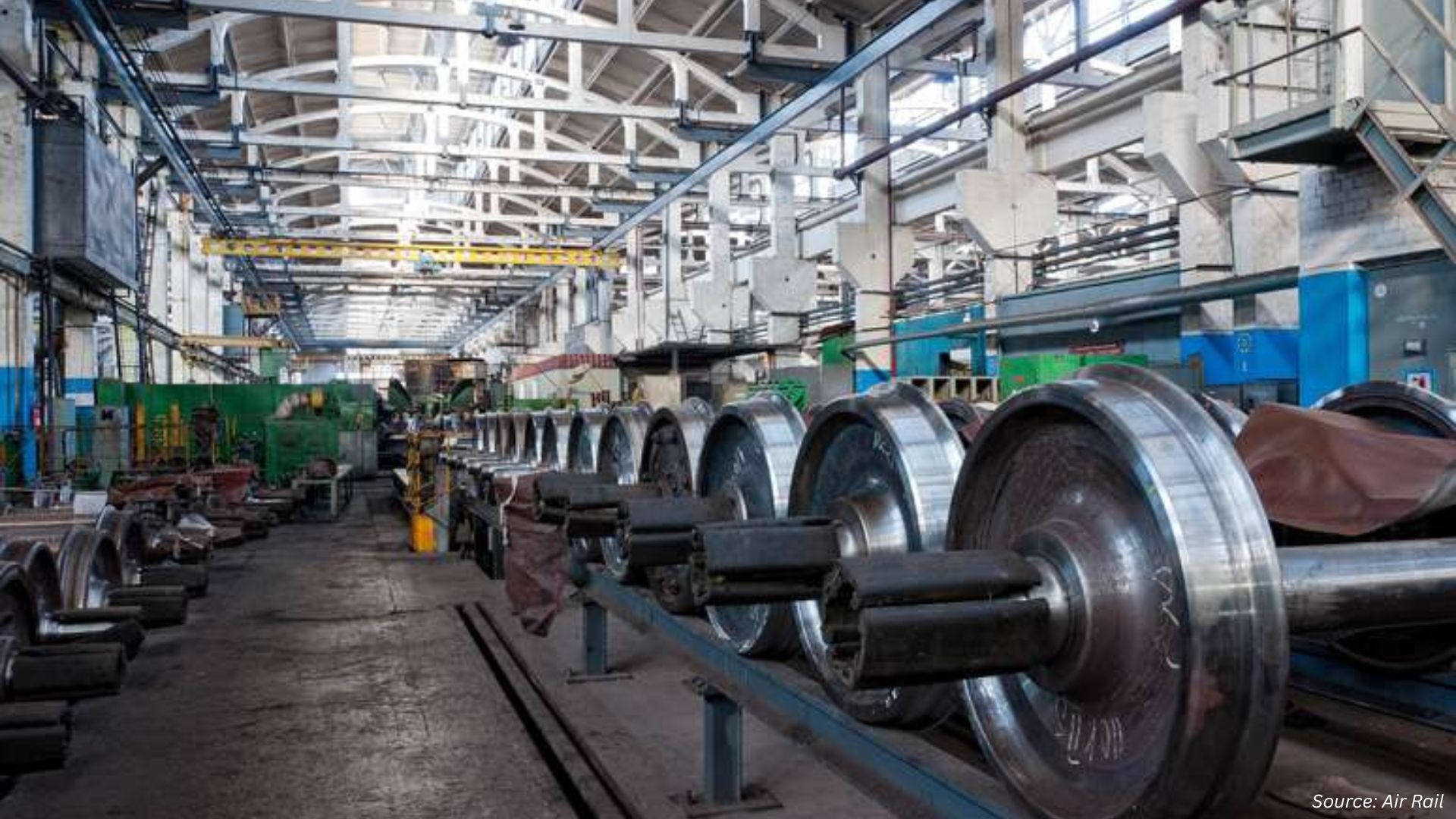
Conveyor System Market Size by Type (Belt Conveyor, Roller Conveyor, Pallet Conveyor, Overhead Conveyor, Tri-Planar Conveyor, Crescent Conveyor, Skid Conveyor, Trailer Conveyor, and Others), by Component (Aluminium Profile, Driving Unit, Extremity Unit and Others), by Operations (Manual, Automatic and Semi-Automatic), by Capacity Type (Unit Handling and Bulk Handling and Others) – Global Opportunity Analysis and Industry Forecast 2024-2030
Conveyor System Market Overview
The global Conveyor System Market size was valued at USD 9.03 billion in 2023 and is predicted to reach USD 12.48 billion by 2030 with a CAGR of 4.74% from 2024 to 2030. Conveyor system refers to a material handling apparatus that helps in the transportation of materials, products or goods from one location to another within an industrial facility or between different sites.
The conveyor system consists of an integrated framework of belts, rollers, chains, or other moving components facilitating the movement of items across a predetermined path. The utilization of conveyors benefits industrial sectors by automating material movement, diminishing the need for manual labour, enhance safety measures, and operations, leading to cost savings and heightened industrial productivity.
Conveyors help to optimize space utilization enhance tracking and tracing operations for improved inventory management, and contribute to environmental sustainably by facilitating energy efficient solutions. Its flexibility, scalability, and ability to integrate with automation systems make conveyors versatile and indispensable solutions for diverse industrial layouts.
Market Dynamics and Trends
The rising adoption of Industry 4.0 in the manufacturing industry is accelerating the demand for conveyor systems. Industry 4.0 includes enhancing the efficiency and productivity of manufacturing operations, which accelerates the demand for conveyor systems as they facilitate the smooth transfer of goods and optimize production processes.
For instance, in 2015, China adopted Made in China, and 2025 is still in operation, drawing inspiration from Germany's Industry 4.0 strategy to transform China from a manufacturing giant that relies on low-cost labour into a world manufacturing power. The adoption of Industry 4.0 in the form of such a strategy accelerates the demand for conveyor systems as it helps in the seamless transfer of goods, supports high-speed production, and synchronizes production processes.
Additionally, the growing adoption of stringent regulations to improve workplace safety and reduce risk is accelerating the demand for conveyor systems. For instance, in the 110th Session of the Industrial Labour Conference in 2022, safety and health were added to the Fundamental Principle and Right at Work.
As companies prioritize compliance with safety standards, there is a growing need for conveyor systems to streamline material handling processes and ensure worker safety. These systems play a crucial role in facilitating efficient transportation of goods within facilities while minimizing the risk of accidents and injuries.
Moreover, the substantial growth of e-commerce is accelerating the demand of conveyors for efficient handling and order fulfilment process in warehouse and distribution centres to handle large volumes of goods efficiently. According to the United Nations Conference on Trade and Development report, 2021, the global e-commerce sale surge to USD 2.67 trillion in 2021. The rising rate of online shopping accelerates the demand of conveyor systems to enable rapid and accurate sorting, picking, and packing of orders in bulk quantity.
However, implementing a conveyor system typically requires a significant initial investment in equipment, installation, and integration with existing infrastructure, which can be costly for businesses, particularly smaller ones, thus restraining market growth.
On the other hand, the incorporation of advanced material handling technologies such as magnetic levitation, air cushions, and electromagnetic propulsion to reduce friction and energy consumption is anticipated to generate significant growth opportunities for the market in the forthcoming years.
Market Segmentation and Scope of the Study
The conveyor system market is segmented on the basis of type, components, operations, capacity type, end users and geography. On the basis of type, the market is classified into belt conveyor, roller conveyor, pallet conveyor, overhead conveyor, tri-planar conveyor, crescent conveyor, skid conveyor, trailer conveyor and others. On the basis of component, the market is segmented into aluminium profile, driving unit, extremity unit, and others. On the basis of operations, the market is divided into manual, automatic, and semi-automatic. On the basis of capacity type, the market is bifurcated into unit handling and bulk handling. On the basis of end user, the market is segmented into automotive, food & beverage, packaging & warehouse distribution, textile & paper, construction & mining, consumer electronics, food & beverage, e-commerce, chemical & pharmaceutical, and others. Regional breakdown and deep analysis of each segment are included for North America, Europe, Asia-Pacific, and Rest of the World.
Geographical Analysis
Europe holds the dominant share of global conveyor system market and is expected to continue dominating the market during the forecasted period. This is attributed to growing adoption of industry 4.0 by the manufacturing sector in countries such as UK, Germany, and France. Industry 4.0 requires autonomous and seamless transportation of goods and materials that accelerates the demand of conveyors system in the region.
According to Cambridge University report, 2024, under Autumn Statement and advanced Manufacturing Plan, 2023, UK government committed to offer around USD 17.35 million in 2025-26 for adoption of Made Smarter initiative across all manufacturing units in the region.
Moreover, the rising adoption of government initiative for workplace safety and health is incentivizing the industrial sectors in the region to invest in integration of automation such as adoption of conveyors system accelerating its demand in the region. Workers face various occupational hazards risk such as musculoskeletal injuries that is associated with lifting, carrying, and moving heavy loads that accelerates the demand of conveyors in the region. Along with-it conveyors are integrated with additional safety features such as guards, emergency stop buttons, and interlocking systems to prevent accidents and ensure safe operation.
In June 2021, EU strategic framework on health and safety at work 2021-2027 was adopted by EU Commission to adopt key actions towards improvement of health and safety of the workers. Such kind of government strategy encourage the companies operating in the region to adopt conveyors system to maintain workplace safety and free workers from the risk of heavy manual labour.
On the other hand, Asia Pacific is expected to show a steady rise in the conveyor system market. This is attributed to the presence of key players such as conveyor System Limited, Taikisha Limited, and Omtech Food Engineering that are adopting various strategies including product launch is further driving the demand of conveyor system market.
For instance, in April, 2023, Omtech Food Engineering launched wide range of conveyer’s belts in India specially designed for the food industry. These conveyors system undertake diverse tasks and customized belt selection that help manufacturers to reduce down time, increase productivity and enhance overall efficiency.
Moreover, the rising e-commerce industry in the Asia Pacific region is propelling the demand for conveyor systems. As online shopping continues to surge, there's a significant need for efficient and automated logistics solutions to handle the increasing volume of goods.
According to report of World Economic Forum, 2021, e commerce sales in China accounts for 50% of the world-wide retail sales. Conveyor systems play a important role in streamlining warehouse operations, facilitating the seamless movement of products from storage to packing and shipping areas.
With the rapid expansion of e-commerce giants and the growing preference for online shopping among consumers, the conveyor system market is experiencing significant growth as businesses seek to enhance their operational efficiency and meet the rising demands of the digital economy.
Competitive Landscape
The conveyor system industry comprises of various market players such as Continental AG, Siemens AG, Designed Conveyor Systems, Conveyor System Limited, Taikisha Limited, Allied Conveyor Systems, Interroll Inc., Dorner Manufacturing Corporation, Dynamic Conveyor Corporation and Toyota Industries Corporation. These companies are adopting various strategies such as product launch and partnership to remain dominant in the sector.
For instance, in April, 2023, Interroll launched new high-performance conveyor platform (HPP) for courier, express, and parcel service providers at LogiMAT 2023, that showcased advancements in conveyor technology tailored to meet the evolving needs of logistics and parcel handling industries. This product launch signified innovation in the conveyor system market, offering solutions designed for increased efficiency and throughput in logistics operations.
Further, in April, 2023, Designed Conveyor Systems partnered with Industrial Magnetics, Inc. (IMI) to provide comprehensive material handling solutions integrating IMI's magnetic products. This partnership enhanced Designed Conveyor Systems' offerings in the conveyor system market by incorporation of IMI's magnetic technology, enabled efficient and reliable material handling solutions for various industries.
Moreover, in February, 2022, Continental AG. launched Load Sense, a smart conveying system that optimized material flow and enhanced efficiency in logistics operations. This product launch demonstrated advancements in the conveyor system market by offering intelligent solutions that improved productivity and reduced operational costs through real-time load monitoring technology.
Key Benefits
-
The report provides quantitative analysis and estimations of the conveyor system market from 2024 to 2030, which assists in identifying the prevailing market opportunities.
-
The study comprises a deep dive analysis of the conveyor system market including the current and future trends to depict prevalent investment pockets in the market.
-
Information related to key drivers, restraints, and opportunities and their impact on the conveyor system market is provided in the report.
-
Competitive analysis of the players, along with their market share is provided in the report.
-
SWOT analysis and Porters Five Forces model is elaborated in the study.
-
Value chain analysis in the market study provides a clear picture of roles of stakeholders.
Conveyor System Market Key Segments
By Type
-
Belt Conveyor
-
Roller Conveyor
-
Pallet Conveyor
-
Overhead Conveyor
-
Tri-Planar Conveyor
-
Crescent Conveyor
-
Skid Conveyor
-
Trailer Conveyor
-
Others
By Components
-
Aluminium Profile
-
Driving Unit
-
Extremity Unit
-
Others
By Operations
-
Manual
-
Automatic
-
Semi-Automatic
By Capacity Type
-
Unit Handling
-
Bulk Handling
By End User
-
Automotive
-
Food & Beverage
-
Packaging & Warehouse Distribution
-
Textile & Paper
-
Construction & Mining
-
Consumer Electronics
-
Food & Beverage
-
E-Commerce
-
Chemical & Pharmaceutical
-
Others
By Region
-
North America
-
The U.S.
-
Canada
-
Mexico
-
-
Europe
-
The U.K.
-
Germany
-
France
-
Italy
-
Spain
-
Denmark
-
Netherlands
-
Finland
-
Sweden
-
Norway
-
Russia
-
Rest of Europe
-
-
Asia-Pacific
-
China
-
Japan
-
India
-
South Korea
-
Australia
-
Indonesia
-
Singapore
-
Taiwan
-
Thailand
-
Rest of Asia-Pacific
-
-
Rest of the World (RoW)
-
Latin America
-
Middle East
-
Africa
-
Key Players
-
Continental AG
-
Siemens AG
-
Designed Conveyor Systems
-
Conveyor System Ltd.
-
Taikisha Ltd.
-
Allied Conveyor Systems
-
Interroll Inc.
-
Dorner Manufacturing Conveyors
-
Dynamic Conveyors Corporation
-
Toyota Industries Corporation
REPORT SCOPE AND SEGMENTATION:
|
Parameters |
Details |
|
Market Size in 2023 |
USD 9.03 Billion |
|
Revenue Forecast in 2030 |
USD 12.48 Billion |
|
Growth Rate |
CAGR of 4.74% from 2024 to 2030 |
|
Analysis Period |
2023–2030 |
|
Base Year Considered |
2023 |
|
Forecast Period |
2024–2030 |
|
Market Size Estimation |
Billion (USD) |
|
Growth Factors |
|
|
Countries Covered |
28 |
|
Companies Profiled |
10 |
|
Market Share |
Available for 10 companies |
|
Customization Scope |
Free customization (equivalent up to 80 working hours of analysts) after purchase. Addition or alteration to country, regional, and segment scope. |
|
Pricing and Purchase Options |
Avail customized purchase options to meet your exact research needs. |




















 Speak to Our Analyst
Speak to Our Analyst

























